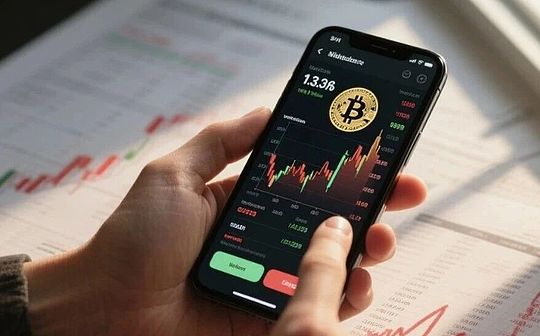
Author: Martin
Blockchain technology is quietly changing the way traditional stocks are held and traded. From the United States to Hong Kong, the stock tokenization boom has swept the global financial markets.
Stock tokenization is the representation of ownership of a company or asset through digital tokens on the blockchain. It converts traditional stocks into cryptocurrencies that can be bought and sold on the blockchain platform, allowing investors around the world to invest in assets that were previously difficult to reach..
Ondo Global Markets officially launched on September 3, with the top trading volume of technology stocks in the US monetization market in the past 24 hours, including:
Nvidia’s 24-hour trading volume was US$164 million;
Google’s 24-hour trading volume was US$103 million;
Tesla’s 24-hour trading volume is $88 million.
Ondo Global Markets has added tokenized stock trading of Figma, AMD, S&P 500 ETF today, providing 24/7 instant access to tokenized US stocks, ETFs and other securities for overseas investors. Non-US investors can buy and sell 100 tokenized US stocks and ETFs (due to jurisdictions, etc.). It has now been listed on Ethereum and will soon expand to BNB Chain, Solana, Ondo Chain and other networks.
Imagine,Apple and Tesla’s stocks no longer exist only on stock exchanges, but have become digital tokens on blockchains that can be held in digital currency wallets and transferred almost instantly around the world.——This is no longer a future fantasy, but a financial revolution that is taking place.
US Case: Galaxy Digital’s innovative attempt
Nasdaq-listed Galaxy Digital partnered with Superstate to tokenize its U.S. Securities and Exchange Commission (SEC) registered stock GLXY on the Solana blockchain.
This is the first time that a publicly listed company has directly tokenized its SEC registration stock on major blockchains, Unlike traditional tokenized products, Superstate directly cooperates with the company to convert SEC-registered stocks into tokens.
These tokens are not derivatives or simply representative assets, but real Galaxy Digital’s Class A common stock, with complete shareholder rights. As the transfer agent registered by the SEC, Superstate can instantly record legal ownership on the blockchain when the token is transferred.
Fosun Case: Guo Guangchang’s US$328 million tokenization practice
At the same time, similar news came from the East.Fosun Wealth Holdings announced that it has tokenized the Hong Kong-listed stock of Sisram Medical, worth up to US$328 million.
The project utilizes Vaulta’s “banking operating system” and integrates Solana into its issuance and settlement technology stack, Sisram Medical, an Israeli medical technology company, a major case of tokenization of stakes in Hong Kong-listed companies.
Operation mechanism: How tokenization works
The core operating mechanism of stock tokenization usually includes three key links:
1. Asset anchoring: Trusted institutions (custodians or brokers) hold actual shares as reserves and issue corresponding amounts of tokens on the blockchain.
2. Compliance design:Embed regulatory rules through smart contracts to ensure that only qualified investors who pass KYC/AML verification can hold and trade tokens.
3. Transaction settlement:Tokens can be bought, sold and transferred like cryptocurrencies, with their value tied to real-world stock prices, and settlement is completed almost instantly.
RWA leader Ondo has opened a new era of stock tokenization, launched the “Wall Street 2.0” plan to launch hundreds of tokenized stocks in batches for the first time, and is expected to exceed 1,000 targets by the end of the year, creating the world’s first large-scale stock target chain trading ecosystem and supporting all-weather trading.
Its innovative model lies in:The physical stocks held by US brokers are used as collateral, and the tokens are instantly minted and redeemed overseas.By directly connecting to stock exchange liquidity (non-new on-chain fund pool), ensure that each token corresponds to the real stock 1:1.All on-chain transactions automatically trigger offline synchronous operations by brokers. This design not only ensures the immediate effect of liquidity, but also explains the technical advantages of Ondo’s ability to quickly achieve large-scale chaining.
At present, the tokenized stock market is still in its early stages, but the stocks issued by Backed such as bCSPX, bCOIN and bNVDA have accounted for nearly 90% of the value of tokenized stocks.
The financial world is undergoing an on-chain transformation, and the integration of traditional stocks and blockchain technology is opening up a new era of more efficient, transparent and globalized financial markets.






